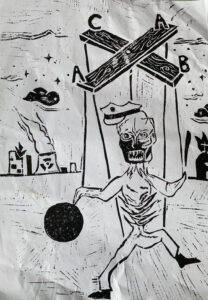 Ban the squatting ban!
Ban the squatting ban!
Since the 1960s, squatting has functioned as a mean of action to stress out a failing housing and vacancy policy: the reason why for decades a squatting ban was regarded as undesirable without any associated effective measures to prevent vacancy. Although squatting has been banned by law since 2010, vacancy and housing shortage have doubled in the past 10 years. And so people are still squatting. The VVD and the CDA do not see vacancies and housing shortages as a problem, but squatting is. At the moment, these parties are working hard for a change in the law to ensure that squatters can be evicted more quickly, without tackling the underlying problems. Because this law will put the legal position of squatters and precarious residents under severe pressure and will only further increase the historically high vacancy rates and homelessness, actions are taking place in various parts of the country today.
One-sided effectuation Squatting and Vacancy Act
Almost 10 years ago, the Squatting and Vacancy Act was passed, on the condition that not only squatting, but also vacancy had to be reduced. Whereas squatting has always been (and still is!) an important stick behind the door of pawnbrokers, from now on municipalities should play a more active role in tackling speculation on vacant property and impoverishment. Fines for structural vacancy, however, have hardly been imposed and thanks to the gigantic boost of vacancy management/property guardianship, it has only become easier for speculators to conceal vacancy under the guise of ‘occupancy through temporary renting’. [Read More]





